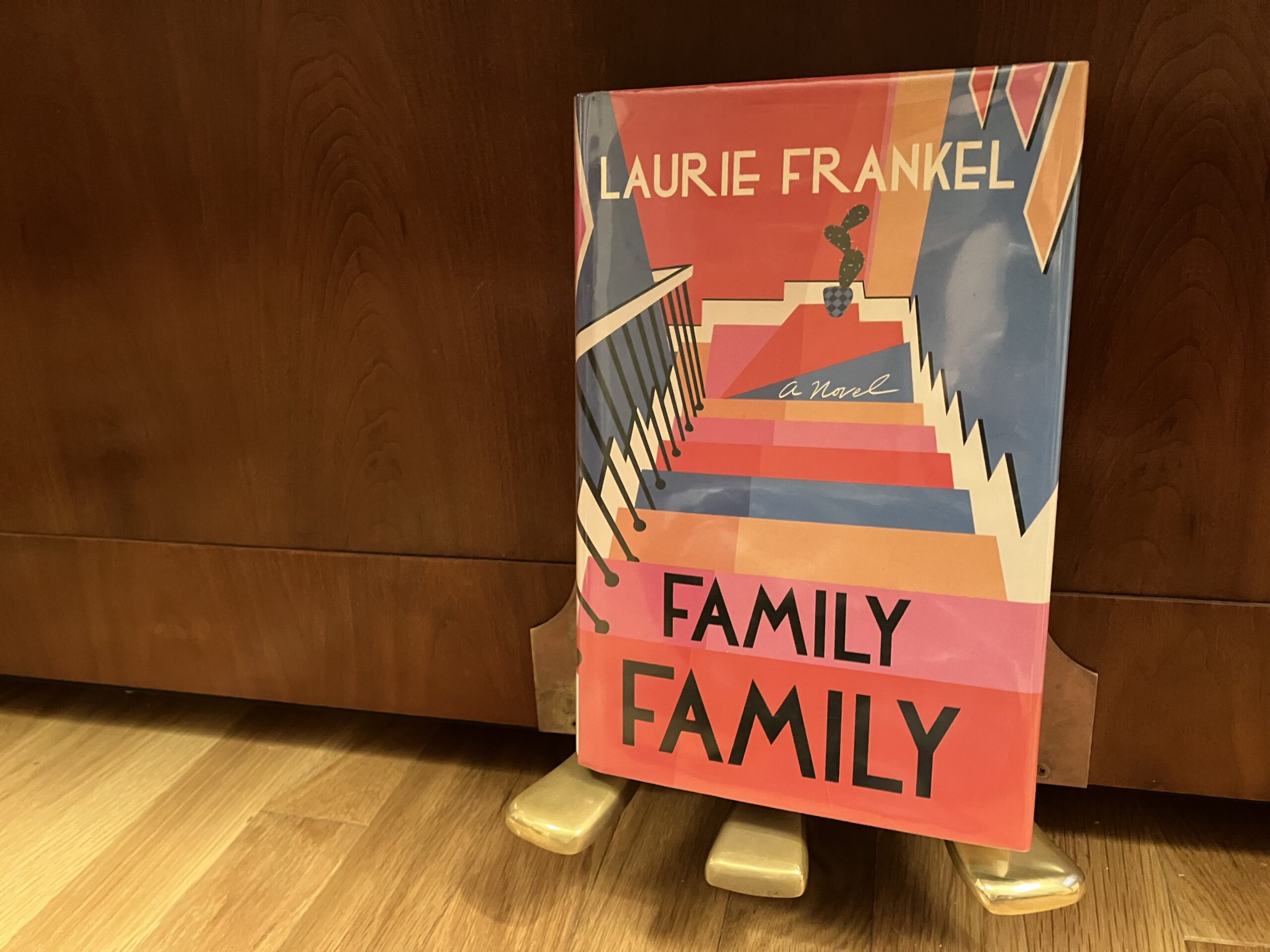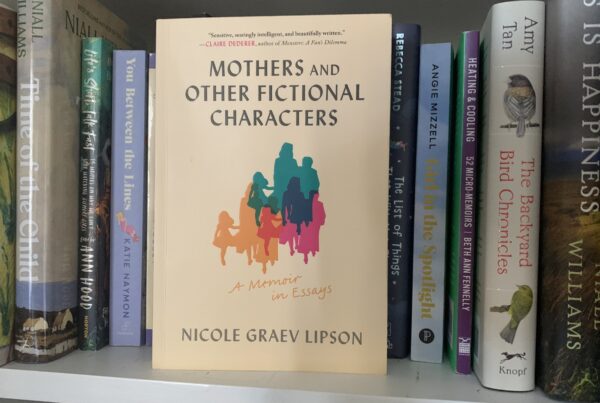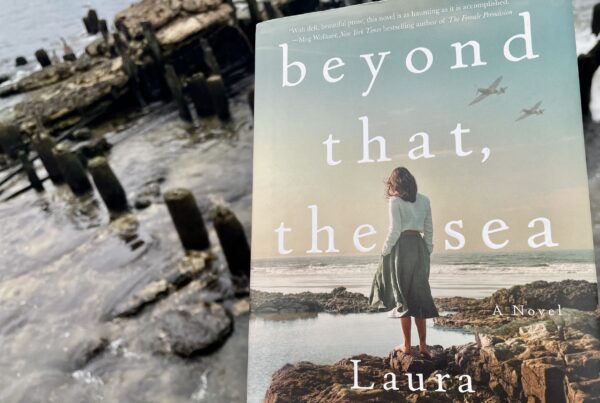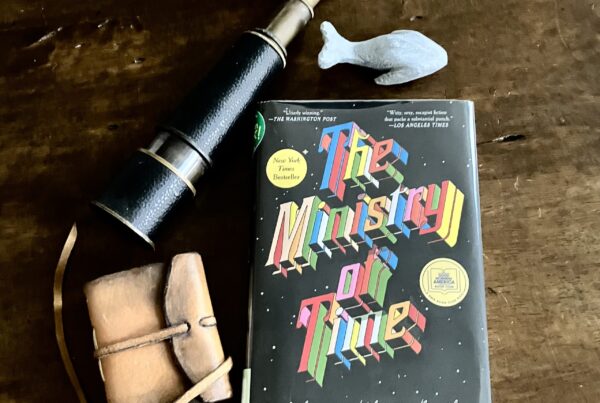With a protagonist so extra that the pages practically turn on their own, Laurie Frankel’s Family Family slides in enough wisdom about families and those who live in them (that is, all of us) to embroider on generations of samplers.
We learn this novel’s expansive definition of family from Frankel’s dedication, which reads: “For my daughter, her birth mother, her foster mother, and every other member of an adoptive family all over the entire damn wide world. We are multitudes.”
India Allwood, the novel’s star, is a theater person to the core. She’s known this ever since she cried through a performance of Guys and Dolls at seven years old and thought, “That’s the only thing I want to do.” Never mind that she can’t sing, never mind that her high school’s drama department mounts only musicals. India auditions over and over until senior year, when the high school puts on a performance of – you guessed it – Guys and Dolls … and she still doesn’t get a part.
But in typical India fashion, crying in the hallway next to the stage door in 2004, her name nowhere to be found on the cast list, she meets someone who ends up shaping her life. Or at least the rest of senior year.
All the while we’re learning about India as a child, teenager, and college student, the book flicks forward to India today, circa 2019, enmeshed with 10-year-old twins called Fig and Jack. They share a phone and are prohibited from reading the “dwebs” (dweebs on the web) harshing on their now-famous mother’s newest film.
The plot continues apace, tackling questions of adoption, pregnancy, parenting, and relationships with a touch so light that wisdom patters in like a child in footie pajamas eavesdropping in the hallway. It gives us lines like India’s mother’s: “This is what parenting is, India. Solving impossible-to-solve problems while also experiencing deep crises of faith while also being kind of annoyed while also never getting enough rest. These problems only ever go away by changing into different equally impossible problems. This is how it always is for all parents, no matter how you came by your children.” Or Fig musing to her half-sister in the middle of the night: “I think families are like flashlights… It’s good to have extra, because sometimes they break and you don’t want to wait until you need one to find out… Sometimes less is more, but not with family. With family, more is more.”
I thought about “more is more” while reading this novel on vacation in San Diego, my hometown. It had been two months since my dad passed away, thirteen years since my mom died, and I’m an only child. My younger son, my husband, and I had met for breakfast at a familiar coffee shop with my childhood next-door neighbor, my only babysitter growing up. She was always ready to show me how to tuck my hands together for a poolside dive or to fold wrapping paper so it hugged the package.
Sometimes I look back on how I became who I am, and I’m not sure where my mom’s influence ended and my neighbor’s began. I can pinpoint some details: the ability to sleep in a camp cabin and put my hair in a decent ponytail came from our neighbor. My love of filling a kitchen with tasting spoons and Tupperware came from my mom’s so-called “Betty Crocker bakeoffs”: mess that descended on the kitchen in the rare moments when she got inspired to cook Julia Child’s parmesan chicken and garlic mashed potatoes.
At the retro coffee shop, its décor now black and silver rather than burgundy and walnut, the four of us forked into pancakes and corned beef hash. We joked that we needed a doggie box for my dad, who used to eat anything in any combination (except cooked spinach), and in honor of my mom, who would throw half of the last dinner roll into a Styrofoam container. But there was no one left to take the doggie box to, and so we ate as much as we could, leaving bits of scrambled eggs and crumbs from an orange coffee cake on our diner plates.
After laughing with our neighbor about my tiny, quirky childhood family, I felt less alone. Frankel writes in the author’s note for Family Family, “The argument I am forever trying to put into words and build stories around is that wider ranges of normal make the world a better place for everyone. Which is to say, your strange family isn’t strange. It’s just a family.”
If you read this book, your own definition of “normal” will grow to include India, Fig, Jack, and all the other characters who make up this particular constellation of flashlights in the darkness.




